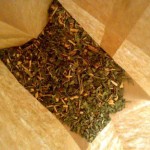Walking down University Avenue in Toronto past all the major hospitals, including the Princess Margaret, a hospital that specializes in oncology, one can’t help but notice the lines of smokers puffing away outside, in front of the hospital doors, in the frigid February air.
The irony of course is that people who are undergoing cancer treatment are engaging in a risky behaviour (smoking) that has been proven to contribute to increased incidence of several cancers, not to mention respiratory diseases. However, most ironic of all, is the fact that, among the patients and hospital workers, there are always few doctors or nurses enjoying their morning Marlboro. This observation brings up the topic of healthcare practitioners as health advocates: is it hypocritical, or even unethical, to suggest to a patient that they must quit smoking in order to support their health when the very healthcare provider giving the advice is a smoker himself?
Naturopathic doctors, I feel, face an even greater dilemma, simply because we preach many healthy lifestyle practices to our patients. We advocate hypoallergenic diets, monitoring caffeine and alcohol intake, a low stress lifestyle and lots of exercise. Society expects healthcare practitioners, especially holistic ones, to follow these practices and, as as result, to look vibrant, thin and youthful. It seems that, as a society, we’re at the point where one is almost unable to offer advice unless they clearly take that advice themselves.
In our Naturopathic Foundations class, we held a class debate about this very topic. A surprisingly high number of classmates asserted that they wouldn’t be able to take advice on weight loss, for example, from a healthcare provider who was clearly overweight. However, I can’t help but see the flaw in this logic. Simply because someone doesn’t look like they follow their own advice doesn’t mean the advice isn’t sound. Weight loss can be a difficult thing to commit to and some people, holistic healthcare practitioners included, may value their daily caramel macciato with whipped cream more than seeing themselves in a size 6 pant. It could very well be that, even though they know how to lose weight themselves, they have simply chosen that the benefits do not outweigh the cons when it comes to their lifestyle choices. This doesn’t mean that they can’t coach another person who has chosen to make this lifestyle choice, be it weight loss or some other lifestyle change.
Another argument is that, we can’t draw conclusions about the wellness journey of an individual simply by looking at them. The doctor who is smoking half a pack a day in front of a cancer hospital, may, in fact, have whittled himself down from 2 packs a day. How can we know for sure? It’s unjust to take a snapshot of the life of an individual and judge them on their knowledge of health, without being aware of the individual circumstances they face. Furthermore, wouldn’t it be equally, if not more, valuable to receive advice on quitting smoking from someone who’s on the same journey themselves rather than someone who has never smoked a pack in their life and, therefore, has never faced the challenge of trying to quit?
Studying at the Canadian College of Naturopathic Medicine I have felt and often heard my colleagues complain about feeling judged by the foods they bring to school or the lifestyle practices they embody. One friend humorously recalled an incident where she was eating Skittles in the cafeteria a midst surprised, slightly judgmental, glances from other students. Various colleagues have also whimsically expressed the desire to bring in a large, stinking bag of McDonalds’ to school, simply for the shock value.
In another Naturopathic philosophy class, in which we interviewed practicing naturopathic doctors, one or our favourite questions to ask as a class was “what’s the least naturopathic thing you do?” Answers ranged from the typical confession about consuming a daily coffee to the occasional fast food indulgence. Through it all, I had to admit to myself that, if I were asked that very question, my list would might turn into a blog post in itself (which would start and end with coffee, coffee, coffee). However, that doesn’t take away from the place I was at years ago, or the naturopathic things I do make a commitment to do on a daily basis.
Health is a broad and elusive concept. For many of us it is a synonym for “happiness” or “fulfillment”, for some, it’s an image they hope to see reflected back at them when they look in the mirror. For others, it’s a state of mind or a generalized physical feeling of energetic well-being. In order to understand if a person is practicing a “healthy lifestyle”, we must first seek to understand their personal definition of health. And, even if this healthcare practitioner hasn’t achieved their goal – which is a balance that is in constant fluctuation – we need to understand more about where they are in their health journey before we move in to judge them.
I think many of us in the naturopathic profession have been drawn to this very profession from life events that resulted in us needing the very medicine we are learning to provide. As people dedicated to health and wellness, we are all faced with the struggle for health and the development of a perfect balance in a life that is in constant motion. I’m tired of hearing my family say things like “if you ____ how are you going to advise your patients that they shouldn’t ____?” I am also tired of hearing it implied by others. No one asks that their sports coach be a Gold Medalist himself. However, they demand that he know how to guide another person with the potential to win one along the path to glory. What was that old saying? Ah, yes, “If you can’t do, teach.”
A healthcare practitioner is someone who can guide us down a path to our own state of health, sometimes even accompanying us, when their path meets our own. However, we mustn’t assume that the ability of our healthcare practitioner to guide us to health is compromised just because they may not be the image of health and perfection we hope to see of ourselves.






